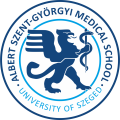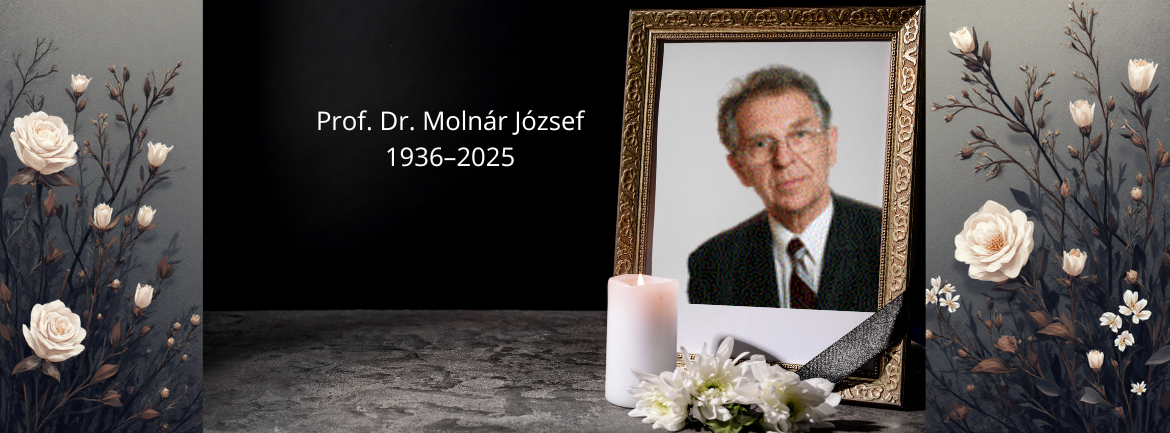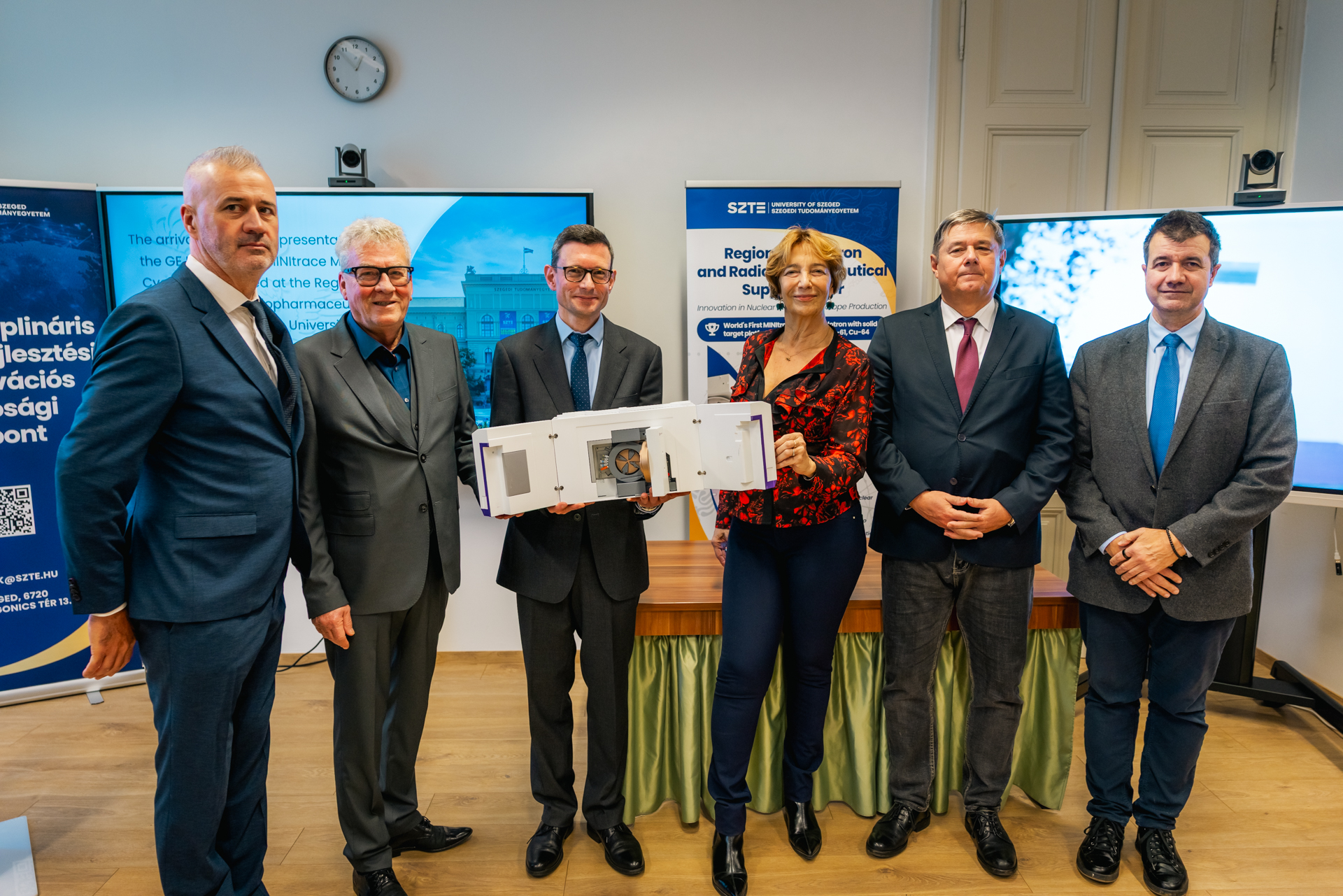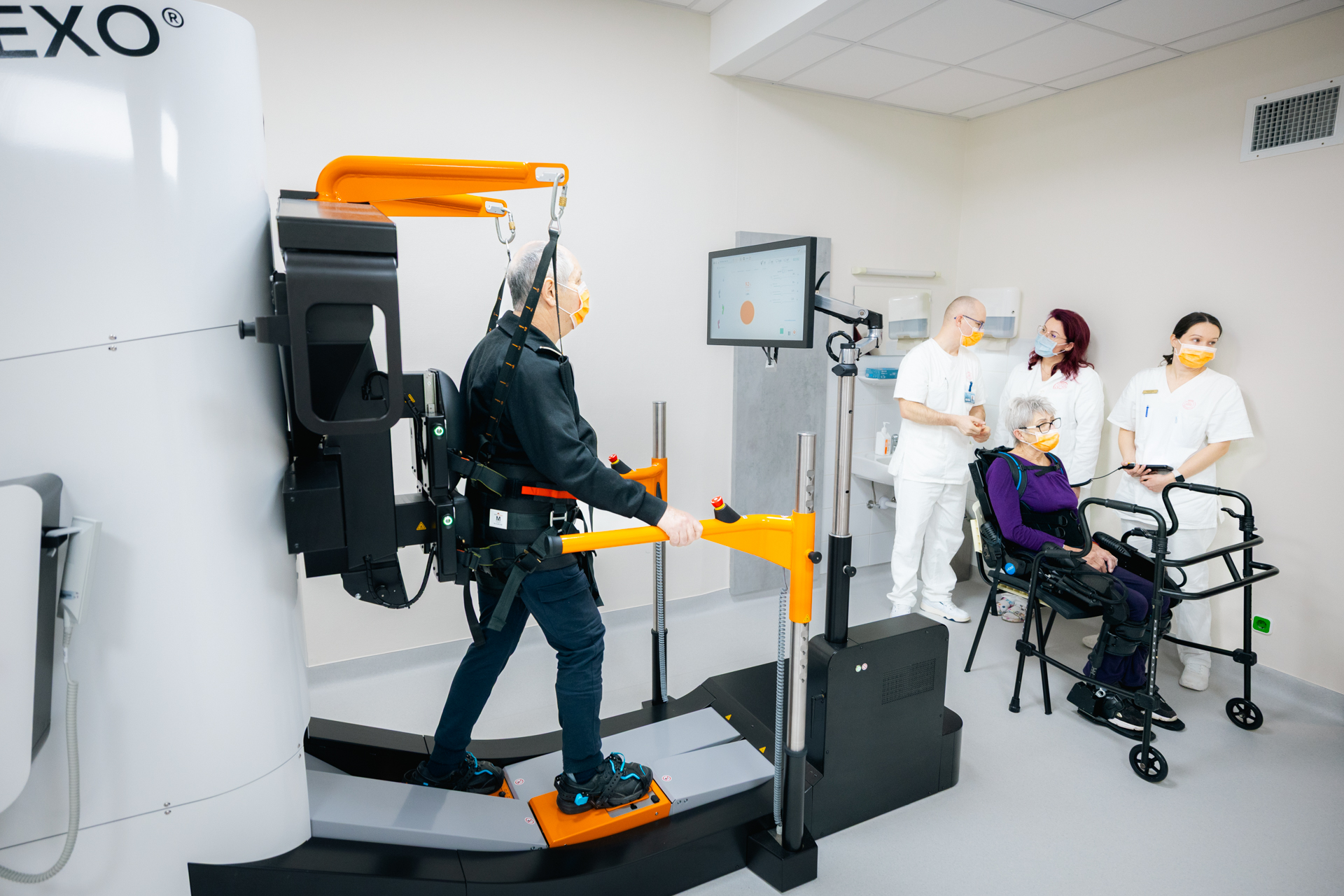University of Szeged
Albert Szent-Györgyi Medical School
Foreign Students' Secretariat
Your Education. Our Mission.

Dr. Levente Szalárdy: Doctor, researcher and composer
Levente Szalárdy has been playing the guitar, violin, piano and folk flutes since childhood and he also founded a folk dance group, but in the end he did not choose music as his career.
Levente Szalárdy has been playing the guitar, violin, piano and folk flutes since childhood and he also founded a folk dance group, but in the end he did not choose music as his career. He became an assistant professor at the Department of Neurology, University of Szeged and he has also been awarded the Junior Prima Prize as a researcher. (This award recognizes outstanding performance of young scientists, whose career has been distinguished by outstanding international results, a continued commitment to excellence in endeavors of science, research, and education in Hungary). The reason for our interview is his debut as the composer of a dance drama.
Music has played a very important role in your life since childhood. Why did you choose medicine then?
I grew up in a family of teachers, where everyone is a musician as well. My mother was a piano teacher, my father taught history, played the guitar and did a lot of concerts in the Beat era. I played the violin for 12 years, learnt to play the guitar and the piano, and all string instruments are very close to my heart. By the time I started high school, we had a band performing poems set to music all over the country. During my high school years, I considered becoming a full-time musician, but eventually chose medicine, However, I kept on performing at concerts during university. I had always planned to become a surgeon, but in the fifth year I was drawn to Neurology. First, I worked as a researcher at the department and then became a clinician after completing my PhD.

You were a full-time researcher for three years. What was this research about and what are you working on now?
My PhD work was basically a detailed pathophysiological characterization of the nervous system of a genetically modified mouse strain, as well as a study of their cognitive and motor behavior. This way, we were able to describe a model of mitochondrial brain disorders, which was a long-awaited achievement. The other area in which I started research was the identification of so-called biomarkers in the human CSF that could facilitate the diagnosis or predict the course of the disease. First, I focused on multiple sclerosis, then my interest shifted to stroke care, including hemorrhagic strokes, and this is still my main area of interest. I felt that this group of diseases was somehow neglected even though it has a significant overlap with neurodegenerative disorders involving the progressive death of certain brain cells, therefore it is related to my previous work. My scientific activity is currently focused on this cerebral amyloid angiopathy.
How is it related to your work as a specialist at the Department of Neurology?
My short-term goal is to diagnose this group of diseases in the simplest and fastest way, possibly before the disease has reached a stage where the quality of life is already deteriorating. This would be very important, as cerebral amyloid angiopathy is responsible for a significant proportion of strokes in old age. The long-term goal is to identify potential therapeutic options that could effectively prevent the progression of this disease.

With all this work, how do you now fit music and composition into your life?
It's not easy, I have to make time for music in the evenings, at night or at weekends besides my work at the department, research and family. Just as I needed a solid background during my PhD, I need the same type of background for music now. I would not be able to manage otherwise. It is my wife I couldn't do without; she's the one who looks after our two children and carries the family on her shoulders. Nowadays, music mostly means composing for theatre performances, in fact as project work.
Working on each performance starts by talking through the events, actions and situations that make up the play to see what kind of atmosphere, mood or image I need to create through the music, how it helps to portray the change of characters or events. Once I have the basic framework of the interpretation, I start working more closely with the choreographer. After we have agreed on our concept, I'll go off and spend the last 3-4 months with my fellow musicians and myself until we get into the studio. I have to capture the inner emotional mood and help with portraying it on the stage.
What do you get from music? Is it connected in any way to medicine?
You need perfectionism for both of them, because it always moves you forward. It's for the benefit of the patient if I double-check everything I've done, but it's also for quality in science, as well as in music. What scientific publications and composing music have in common is thinking in units. You have to see where you started from and where you are going, you need to have an arc to the whole so that you don't lose the reader in the case of publication and the listener in the case of music. It is important that the viewer can be drawn into the piece, and music plays a big part in that.






